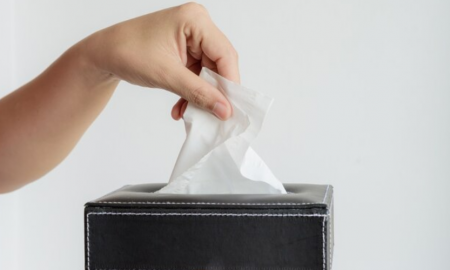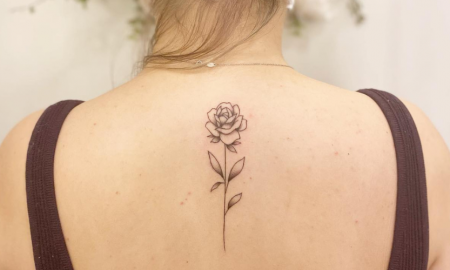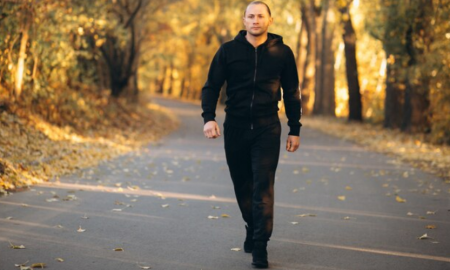
5 Seamless Ways to Minimize BBL Scars

Undergoing a Brazilian Butt Lift (BBL) is an exciting decision for enhancing your body contour. However, BBL scars can be a concern for many. A BBL involves transferring fat from other areas of your body to your buttocks, creating a fuller and more shapely appearance. The procedure typically requires small incisions, which can leave scars.

Take Photos / Pexels / A Brazilian Butt Lift (BBL) is a popular cosmetic surgery that enhances the size and shape of the buttocks using the patient’s own fat.
This procedure involves liposuction to remove fat from areas like the abdomen, hips, or thighs. The harvested fat is then purified and injected into the buttocks. The results are natural-looking and long-lasting, but like any surgery, it comes with the risk of scarring. The good news is that BBL scars can be effectively minimized with the right care and techniques.
Follow Your Surgeon’s Post-Op Instruction to Overcome BBL Scars
Your surgeon will provide specific instructions for aftercare. Adhering to these guidelines is crucial for minimizing BBL scars. Instructions typically include how to care for the incision sites, which creams or ointments to use, and how to manage your activity levels. Following these instructions to the letter helps prevent complications and supports proper healing.
Likewise, it is also important to attend all follow-up appointments. These visits allow your surgeon to monitor your healing process and address any issues early on. They might adjust your care routine based on your progress, ensuring your scars heal as smoothly as possible.
Keep the Area Clean and Moisturized
Keeping your incision sites clean is vital to prevent infection, which can worsen scarring. Gently clean the areas with mild soap and water as directed by your surgeon. Pat the area dry with a clean towel instead of rubbing, which can irritate the skin.

Mell / Pexels / Moisturizing the scar with appropriate creams or ointments can help. Give it a try!
Products containing ingredients like vitamin E, aloe vera, or silicone are known to support skin healing and improve the appearance of scars. Regularly applying these can keep your skin hydrated and pliable, promoting better scar formation.
Avoid Sun Exposure
Exposing healing scars to the sun can darken them and make them more noticeable. UV rays can cause hyperpigmentation, making scars stand out more against your natural skin tone. It is essential to keep your scars covered or apply a high-SPF sunscreen if they are exposed to sunlight.
Plus, wearing loose clothing that covers the affected areas can provide additional protection. However, if you have to be outside, use a broad-spectrum sunscreen on your scars and reapply it frequently. This practice will help keep your scars lighter and less visible over time.
Use Scar Treatment Products
Specialized scar treatment products can significantly reduce the appearance of BBL scars. Silicone sheets and gels are particularly effective, as they create a protective barrier that helps retain moisture and encourages scar softening. These products should be used as directed, often requiring daily application for several weeks or months.

Master / Pexels / When using treatment products for your BBL scars, make sure to use them as directed by your physician.
Other products like onion extract gels or cortisone creams can also be beneficial. These treatments work differently but can all contribute to smoother, less noticeable scars. Consulting with your surgeon about the best products for your skin type and scar condition is always a good idea.
Consider Professional Treatments
If your BBL scars are particularly stubborn or prominent, professional treatments might be necessary. Laser therapy, microneedling, and chemical peels are popular options for reducing scar visibility. These treatments work by promoting new collagen production and skin regeneration, which can help blend the scars with the surrounding skin.
However, it is essential to consult with a dermatologist or your plastic surgeon before opting for these treatments. They can recommend the most suitable options based on your skin type and the nature of your scars.
More in Plastic Surgery
-
`
How Long Does a Non Surgical Nose Job Last?
The allure of a sculpted nose without the downtime of traditional surgery has captivated many. Non-surgical rhinoplasty, often dubbed a “liquid...
August 11, 2024 -
`
How to Plan a Trip to Italy and Greece
Italy and Greece stand out as two of Europe’s premier travel destinations, each offering a unique blend of historical grandeur, stunning...
July 31, 2024 -
`
Are Makeup Wipes Bad for Your Skin?
In the quest for quick and convenient skincare, makeup wipes often seem like a miracle solution. However, if you’re wondering, Are...
July 26, 2024 -
`
How to Do Ab Workouts During Pregnancy?
Maintaining core strength is vital, but can you do ab workouts while pregnant? This question is common among expectant mothers eager...
July 19, 2024 -
`
Best Places for Birthday Party Fun for All Ages
Celebrating your birthday at an exciting venue can add that extra spark to your special day, whether you’re with family, friends,...
July 2, 2024 -
`
Skincare for Sensitive Skin: Top 6 Products to Try
Taking care of sensitive skin can be a challenge. With so many products on the market, finding the right ones that...
June 28, 2024 -
`
How to Build Muscles & Gain Mass After 50
Are you wondering how to build muscle mass after 50? You are not alone. Many people think that hitting the big...
June 20, 2024 -
`
How to Speed Up Your Nose Job Recovery Time
Undergoing a rhinoplasty is an exciting step towards a new appearance, but it comes with a recovery period that requires patience...
June 15, 2024 -
`
Best Tattoo Ideas for Women With Meaning
Are you on the hunt for tattoo ideas for women with meaning? Tattoos are more than just body art; they’re personal...
June 4, 2024















You must be logged in to post a comment Login